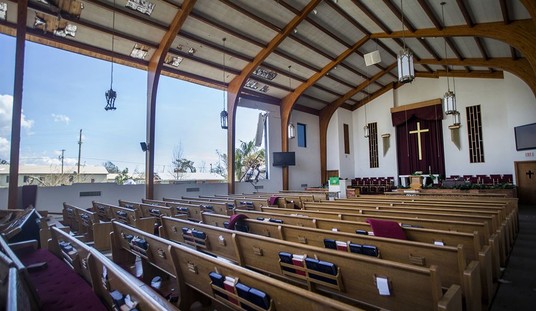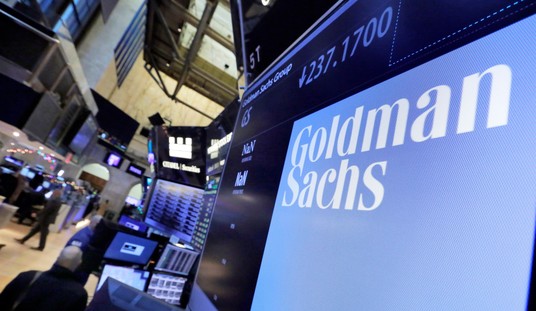Amid growing signs of instability in Iraq, President Barack Obama authorized a secret plan late last year to aid Iraqi troops in their fight against Sunni extremists by sharing intelligence on the militants’ desert encampments, but devoted only a handful of U.S. specialists to the task…
Instead of providing Iraqis with real-time drone feeds and intercepted communications from the Islamic State of Iraq and al-Sham, the militant group that has overrun parts of Iraq, U.S. intelligence specialists typically gave their Iraqi counterparts limited photographic images, reflecting U.S. concerns that more sensitive data would end up in Iranian hands, these officials said…
Administration and congressional officials say the U.S. also miscalculated the readiness of Iraqi forces: The White House’s limited investment in the intelligence center was driven at least in part by the assumption that Iraqi forces would be more competent, the official said. Then, at the end of April, the Pentagon dispatched a team of special-operations personnel to assess the capabilities of Iraq’s security forces, a defense official said.
The assessment they brought back was bleak: Sunni Army officers had been forced out, overall leadership had declined, the Iraqi military wasn’t maintaining its equipment and had stopped conducting rigorous training. The response in Washington, summed up by a senior U.S. official, was: “Whoa, what the hell happened here?”
A new ISIS propaganda video that drew attention Friday for featuring English-speaking jihadists is a carefully crafted message meant to demonstrate the group’s popularity and strength, experts tell NBC News.
In the video, at least five fighters sit in a wooded area, with the black flag of ISIS planted in the ground behind them. Three of the fighters speak to the camera, all of them speaking English.
“We have brothers from Bangladesh, from Iraq, from Cambodia, Australia, UK,” says one fighter, who is identified as British.
“All my brothers, come to jihad,” says another fighter, who is also identified as British. “Feel the honor we are feeling, feel the happiness that we are feeling.”
Its extortion rackets in Mosul netted as much as $8 million a month, according to Gen. Mahdi Gharawi, until recently the Nineveh Province police commander, in an interview with Niqash, an Arabic-language news website. And that was even the ISIS insurgents took over. Once in charge, they typically levy “taxes,” which are just as lucrative. So-called road taxes of $200 on trucks are collected all over northern Iraq to allow them safe passage. The Iraqi government claims that the insurgents are now levying a “tax” on Christians in Mosul, who were a significant minority there, to avoid being crucified…
A member of the board of governors of the Central Bank of Iraq was reluctant to specify how much ISIS got away with in Mosul, but estimated that it at least $85 million and possibly much more…
“ISIS gets some money from outside donors, but that pales in comparison to their self-funding,” said an American counterterrorism official. “The overwhelming majority of its money comes from criminal activities like extortion, kidnapping, robberies and smuggling. In Mosul, ISIS has probably been hauling in several million dollars monthly just from its extortion racket. In overrunning the town the group is better off financially, but probably to the tune of millions — not hundreds of millions — of dollars.”…
The militant group has so much cash that it has reopened some of the banks it looted in Falluja, in Anbar Province, to stash it in.
As Iraq spirals into chaos, Prime Minister Nouri al-Maliki is now relying on the militias, which once carried out hundreds of attacks on U.S. soldiers, to help him cling to power…
“Potentially what this could amount to is the U.S. arming or advising Iranian proxies, some of which are on the terror list,” said Phillip Smyth, a researcher at the University of Maryland specializing in Shiite Islamist groups…
While most disbanded, some groups, such as the Iran-backed Asaib Ahl al-Haq and Kitaeb Hezbollah, which is designated as a terrorist organization by the United States, have remained active since the U.S. withdrawal and have slowly built their presence in the security forces for years. Smyth described their infiltration as “systemic,” raising the possibility that U.S. advisers might soon be working alongside militiamen who once fought them…
While Sadr’s followers are in the process of organizing, Asaib Ahl al-Haq, which killed and kidnapped numerous American soldiers before the U.S. withdrawal, says it is already actively working within the security forces. The ISIS advance has only strengthened that role, members said.
In the months before the fall of Mosul, scores of Sunnis turned up dead in Baghdad, victims of mass executions. Hundreds of families moved out of their homes in Diyala province due to intimidation. The government has been complicit: Iran-backed militias are now reporting to a special division of Maliki’s office, and in some cases, they are conducting joint operations with government forces. The abuses have apparently escalated recently. For example, on Tuesday in Baquba, the capital of Diyala, 44 Sunni prisoners were found dead in a government-controlled prison with bullet holes in their heads.
Quds Force leaders might not be ordering these atrocities directly, but they do appear to take a “boys will be boys” attitude toward horrific violence. As long as they do, it’s difficult to imagine that any Sunni leader will be eager to collaborate with a government that also partners with sectarian killers…
There’s no guarantee the U.S. can wield enough leverage to affect Iran’s behavior, or that Iran exerts enough control over the militias to calm the sectarian frenzy. For this reason, Obama appears disinclined to order air strikes unless the conditions exist for political progress. The nightmare scenario is that the U.S. could find itself bombing Sunni-majority cities while Shia militias run rampant through Baghdad. The war would become increasingly sectarian, with America taking sides. Any military victory would be fleeting. ISIS would no longer need to produce propaganda videos, because the atrocities reported on CNN would be enough to radicalize the next generation of jihadis.
If the oil we need is truly endangered, and this tips us into a new recession . . .
If daily we see shootings and beheadings of people who bravely and kindly stood with us during the war . . .
All that will have a grinding, embittering effect on the public mood. And if some mad group of jihadists, when their bloody work in Iraq is finished, decide to bring their efforts once again to an American city—well then, obviously, all bets will be off.
But the old American emotionalism, the assumption that the people of Iraq want what we want, freedom and democracy, is over. Ten years ago if you announced you had reservations about what the people of Iraq really want, and maybe it isn’t freedom and democracy first, such reservations were called ethnocentric, belittling, bigoted. That’s over, too. We are hard-eyed now.
I’ve warmed to the argument that the Sykes-Picot arrangement was, in one sense, inadvertently progressive. The makers of the modern Middle East roped together peoples of different ethnicities and faiths (or streams of the same faith) in what were meant to be modern, multicultural, and multi-confessional states. It is an understatement to say that the Middle East isn’t the sort of place where this kind of experiment has been shown to work. (I’m thinking of you, one-staters, by the way.) I don’t think it is worth American money, or certainly American lives, to keep Iraq a unitary state. It is, of course, important to invest in plans that forestall the creation of permanent jihadist safe havens, and about this the U.S. should be vigilant, more vigilant than it has been. But Westphalian obsessiveness—Iraq must stay together because it must stay together—just doesn’t seem wise.
More on all this later, but I’ll leave you with one quote from the story that struck me on re-reading, in part because it may represent what President Obama secretly feels about the Middle East. At one point, I asked David Fromkin, the author of A Peace to End all Peace, the definitive account of the making of the modern Middle East, whether he would speculate about the region’s future. This is what he said in 2007: “The Middle East has no future.”
It is not that there was a complete absence of authentic moderate Muslim and non-Muslim democrats in Syria. There simply aren’t enough of them to make a difference. The brute fact is that only Islamic supremacists and their ruthless jihadist factions had a chance to overthrow Assad, if they got enough outside help.
The claim that Obama abandoned the opposition is equally bogus. Because of the president’s delusional theory that the Muslim Brotherhood are “moderates” we can ally with, he quietly colluded with Qatar and the Saudis to arm and train the Syrian “rebels.” It blew up on him because the “moderates” are not moderate. The Brothers concur in al-Qaeda’s sharia goals and readily resort to terrorism if that is what is necessary to achieve them. So arming the rebels, as Obama helped do, necessarily meant arming anti-American jihadists. This has proved embarrassing, so what Obama has done, at least so far, is refrain from giving the “rebels” decisive aid — the kind he gave the “rebels” in Libya, to disastrous effect in Benghazi. That is hardly an aid vacuum.
Similarly fatuous is the vacuum narrative regarding Iraq. As I argued throughout the Bush years, Prime Minister Nouri al-Maliki has always been Iran’s guy, and under his regime, Iran’s tentacles were allowed to spread throughout post-Saddam Iraq — the State Department and the Iraq Study Group sharing the loopy conceit that Iran had an interest in a stable Iraq even as Iran was fueling both sides of Iraq’s civil war, supplying Sunni terrorists with IEDs, and running Shiite terror cells against our troops…
In truth, Iraq was never stable. Only the presence of American troops prevented an outbreak of Sunni–Shiite warfare. The Sunnis were temporarily “awakened” by being paid off, not by a commitment to Iraqi “democracy” that promised domination by Iran-controlled Shiites. And because the conflict is global, it was never possible to obliterate al-Qaeda in Iraq.
Democracy became the shovel we Westerners used to dig ourselves out of destitution only after we had spent decades using it to batter one another over the head. It took generations before the Robespierres and Cromwells were worked out of the system.
Second, we are applying an emaciated version of the word “democracy.” It is a cliché to say that democracy means more than elections, but the need to build institutions and freedoms, to challenge traditional structures and end the myth that popular sovereignty is a Western import – these challenges are too often neglected…
I’m not as willing as Mr. Lilla to believe that we should merely accept this. Nor do I think we should believe the idea, popular once again in some quarters, that some societies and peoples simply aren’t meant for liberal democracy. But we do need a lot more humility, and a lot more patience.








Join the conversation as a VIP Member